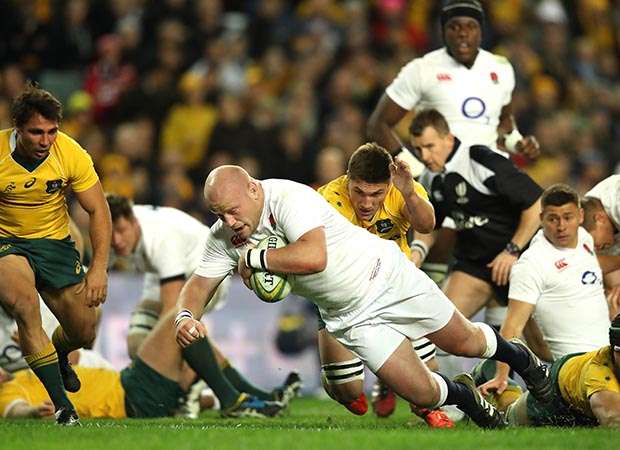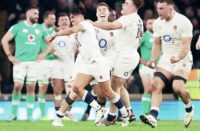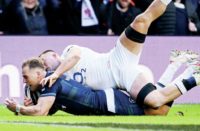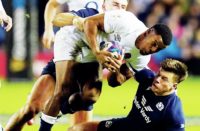 Well that's it, regular season and summer tour fun finally over with a first-ever series win – and whitewash to boot – in Australia to add to the first Grand Slam since 2003.
Well that's it, regular season and summer tour fun finally over with a first-ever series win – and whitewash to boot – in Australia to add to the first Grand Slam since 2003.
In just the few short months since Eddie Jones took over, England have risen from eighth in the world to second and Eddie is aiming for the top spot.
I hate to be a party-pooper but even if he makes it, which, although improbable, is possible if New Zealand fall apart in this year's Rugby Championship, it will count for nothing unless the team can stay there until 2019.
For all the immediate successes England have achieved, it has not been built on rocket science or some fantastic new style of play; instead, it is just a very simple game plan and a very good defence.
A game plan that consists of having a dominant pack in scrum and lineout to provide the ball which is then kicked for territory with a rush defence designed to pressure the catcher and defending team into giving away penalties so that Owen Farrell can kick them. It doesn't seem to me good enough to dominate the world rankings until the next Wold Cup.
Rather like Wales, England now have a plan A but if they want to emulate the All Blacks they have to add a plan B and probably C as well.
The clever thing Jones did was bringing in a new back room team because he understood the message from the previous coaching team had had its day.
Every coach has a window of time when they can make a difference to how a team performs. After that, they might just as well pack their bags and head for the hills but no coach would choose to step down from coaching a national side.
The skill of a head coach is to see when players are no longer reacting positively to the messages from his coaches and replace them, which is not as easy as it sounds.
After working as a group for a number of years, it can be very difficult for a head coach to effectively see that his team is no longer the driving force of ideas that enthuse the players and so sack his coaching team and find another.
Geoff Cooke did that when he replaced Roger Utley with Dick Best; Clive Woodward didn't and his coaching group remained after the success of the 2003 through most of the disaster that was post-World Cup English rugby, including Andy Robinson's reign as head coach until shortly before his replacement by Brian Ashton.
When Jones took over, he was asked if he wanted to keep the previous coaching staff of Andy Farrell, Graham Rowntree and Mike Catt, and after taking some advice said no and chose his own men.
The new coaches have changed how the team has performed with Steve Borthwick, forward play, Ian Peel, the scrum, and Paul Gustard, defence, making real strides mainly with the forwards, bringing back the traditional dominance that England were known and respected for.
And therein lies the rub, the simple game plan is based on that old favourite of England rugby, a dominant pack of forwards who can beat a lot of teams but not all. Nothing wrong with that – but if fast Eddie wants to dominate the world over the next three years he will need to find a backs coach to match the quality of his forwards coaches and broaden his game plan to encompass the backs.
On that front, the addition of Mark Ella to the coaches for this tour has been a little disappointing as it would seem the only input he has had is to tell the English backs the Australian moves so they can tackle them.
If fast Eddie is to achieve his goal he need a backs coach like Alex King, left, who has a wealth of experience of coaching throughout Europe and could add the extra dimension to the backs play that England will need if they are to make a realistic and lasting challenge for the number one spot.
The current distraction of how many games England can go without losing one is in danger of becoming a ‘monkey on the back' of the whole squad with players dreading being part of the team that eventually loses the record.
Winning is good, which every team wants to achieve but if, like England, you suddenly hit a winning streak without laying the foundations, you have to wonder if the results are because your team is playing well or the opposition are playing badly – or is it a combination of both?
Clive Woodward's World Cup-winning 2003 team slowly built from losses to reach the world ranking number one spot and win a Grand Slam in the World Cup year.
Despite Eddie Jones' insistence that there is no timetable for England's progress from what they have amazingly achieved so far, he is wrong. Every game they play from now until the first game of the 2019 World Cup will be vital to how the team develops in terms of the confidence and maturity, and that will be essential if they are to eventually win the World Cup.


























